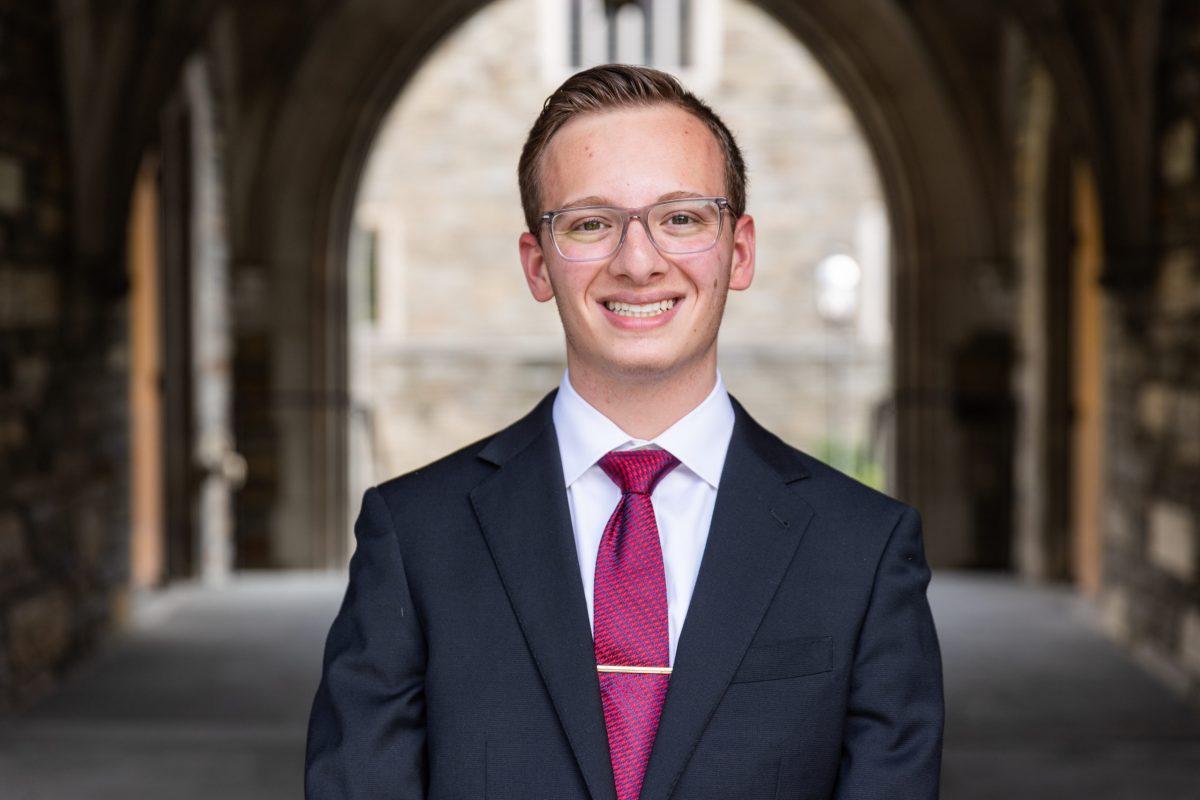Sal De Rienzo ’22, known on campus for his leadership role as vice president of University Student Senate (USS), is now also the winner of an international undergraduate prize in economics.
De Rienzo, a double major in philosophy and economics, won the Omicron Delta Epsilon (ODE) Undergraduate Research Award, which is granted each year to one member of the International Honors Society for Economics. De Rienzo was announced as the winner at the Annual Allied Social Science Association on Jan. 8.
De Rienzo’s winning paper, titled “Shelby County vs. Holder and Changes in Voting Behavior,” explored how changes to the Voting Rights Act affected different populations of voters in the United States.
In the 2013 Shelby ruling, the U.S. Supreme Court determined that Section 4(b) of the Voting Rights Act of 1965 is unconstitutional. Section 4(b) had provided a formula to determine which jurisdictions had a history of racial discrimination in their voting laws.
“I analyzed how the policy change, how the court case affected the likelihood of voting overall and how that affected people differentially across race, ethnicity and nativity, and I found that people were significantly less likely to vote following the court case,” De Rienzo said.
De Rienzo explained how this research, though it only showed association, not causation, could have major implications for voting policy in the U.S.
“What this shows is that there’s a significant association between the court case and disenfranchisement,” De Rienzo said.
Aside from the recognition, De Rienzo will also receive a monetary prize and the opportunity to be published in The American Economist.
The ODE Undergraduate Research Award is given annually to a single student from the honors society. There are 696 ODE chapters from all over the world, making it extremely competitive, according to J.J. Arias, Ph.D, professor of economics at Georgia College & State University and ODE’s vice president of competitions.
“It’s something that’s very unique and stands out on their resume,” Arias said. “Especially if they can get published in The American Economist, it really looks really good to have a publication in a peer reviewed journal like that.”
De Rienzo is currently working on revisions to his article with the hope of getting it published.
Arias said “Shelby County vs. Holder and Changes in Voting Behavior” checked every box during the judging process.
“His paper didn’t really have a weakness,” Arias said.
Laura Crispin, Ph.D., associate professor of economics and De Rienzo’s faculty advisor for this research, said De Rienzo “asked a really good question and made a great contribution to that research.”
“He found a topic that is very important and very timely, given everything that’s going on nationally with elections and voting access, and voting rights,” Crispin said.
De Rienzo is considering a year of service with the Jesuit Volunteer Corps or policy-related work after he graduates in May, but he said he hopes to eventually attend graduate school.
















































